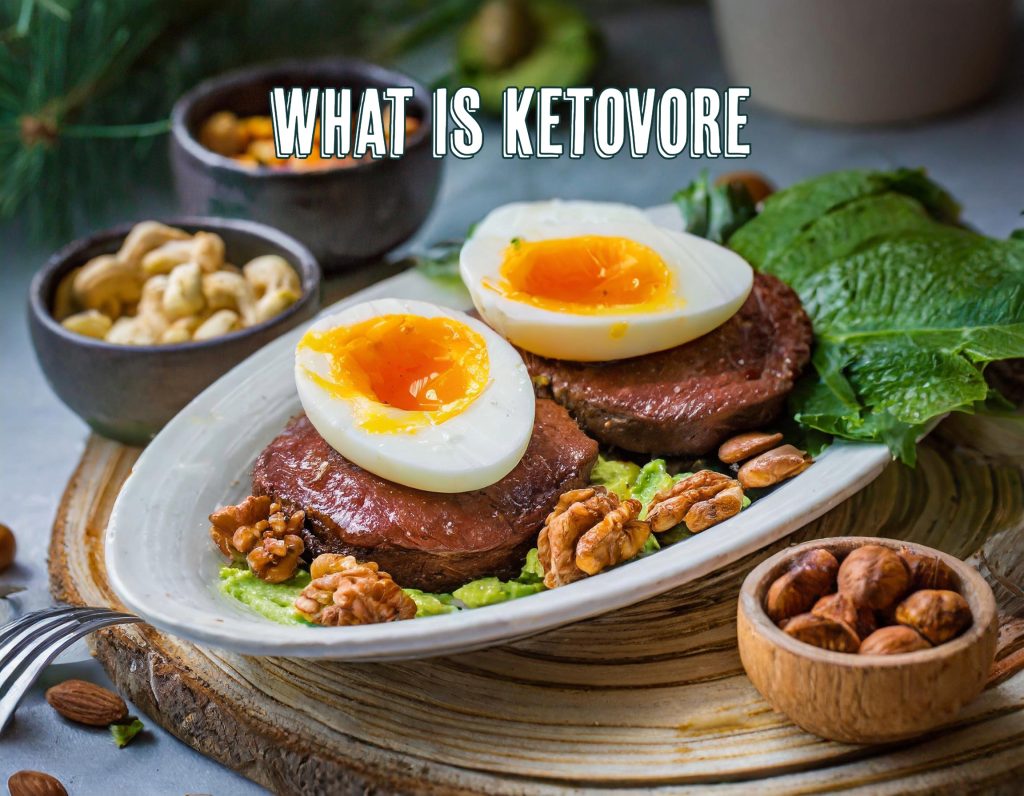Ketovore Diet: A Carnivore Twist on Keto
The world of diets can be overwhelming, with new options and variations constantly popping up. Two popular dietary trends are the ketogenic diet (keto) and the carnivore diet. A hybrid approach combining these two has emerged: the ketovore diet.
What is the Ketovore Diet?
The ketovore diet takes inspiration from both keto and carnivore approaches. It prioritizes animal products like meat, fish, eggs, and sometimes dairy while minimizing or even eliminating plant-based foods. This focus on animal products aligns with the carnivore diet, but the ketovore diet allows for some flexibility by incorporating low-carb vegetables and occasional keto-friendly treats.
How Does it Work?
The ketovore diet aims to induce ketosis, a metabolic state where your body burns fat for fuel instead of carbohydrates. By drastically reducing carbs and relying heavily on fat from animal products, the body depletes its glycogen stores (stored glucose) and starts producing ketones from fat for energy. This shift can lead to several potential benefits, including:
- Weight loss: Ketosis can promote fat burning, potentially leading to weight loss.
- Improved blood sugar control: Reduced carbohydrate intake can help regulate blood sugar levels, potentially benefiting individuals with type 2 diabetes (consult a doctor before starting this diet).
- Increased energy levels: Stable blood sugar and ketosis might contribute to more sustained energy throughout the day.
Differences Between Keto and Ketovore:
- Food Variety: Keto allows for a wider range of foods, including low-carb vegetables, nuts, seeds, and some berries. Ketovore is stricter, focusing primarily on animal products.
- Flexibility: Keto offers more flexibility in incorporating occasional treats and experimenting with different low-carb options. Ketovore is a more restrictive approach.
Is the Ketovore Diet Right for You?
The ketovore diet can be effective for some individuals, but it’s not a one-size-fits-all solution. Here are some things to consider:
- Consult a Doctor: Discuss the ketovore diet with your doctor, especially if you have any underlying health conditions.
- Nutritional Deficiencies: A strict ketovore diet might lack some essential nutrients in plant-based foods. Consider supplementation if needed.
- Individual Needs: Evaluate your health goals and preferences. The ketovore diet may not be suitable for everyone.
Getting Started with Ketovore:
If you’re interested in trying the ketovore diet, here’s a roadmap to get you started:
- Do your research: Deep dive into the ketovore diet. Understand its core principles, potential benefits, and drawbacks. Explore online resources, consult with health professionals, and familiarize yourself with the science behind ketosis and the carnivore approach.
- Plan your meals: Create a ketovore meal plan incorporating various animal protein sources. Focus on fatty cuts of meat, fish rich in omega-3s, and eggs. Include low-carb vegetables like leafy greens, broccoli, and asparagus to ensure you’re getting essential vitamins and minerals. Sample recipes and meal plans can be a great starting point, but don’t be afraid to experiment and personalize your approach.
- Listen to your body: Pay close attention to how you feel throughout your ketovore journey. Are you experiencing stable energy levels or fatigue? How is your digestion? Monitor your mood, sleep quality, and overall well-being. This self-awareness will help you identify potential areas for adjustments. As your body adapts to the ketovore diet, you might need to tweak your approach to optimize your experience.
- Consider supplementation: A strict ketovore diet might limit your intake of certain vitamins and minerals in plant-based foods. Discuss potential supplementation with your doctor to address any nutrient deficiencies. Blood tests can help assess your individual needs and determine if specific supplements are necessary.
Remember, consistency is key. The ketovore diet requires a dedicated effort, especially in the initial stages. By following these steps and remaining committed to your health goals, you can successfully navigate the ketovore journey.
Remember:
The ketovore diet can be a challenging but potentially rewarding approach. Embarking on this journey requires research, planning, and self-awareness. Consulting a doctor before starting is crucial to ensure the diet aligns with your individual needs and health conditions. They can help you create a safe and effective ketovore plan. Prioritizing your health should be at the forefront of your decision-making. Listen to your body’s signals throughout your ketovore experience. Pay attention to your energy levels, digestion, and overall well-being. Don’t hesitate to adjust your approach or seek professional guidance if needed. With careful planning and a willingness to adapt, the ketovore diet can be a successful path to achieving your health goals.


